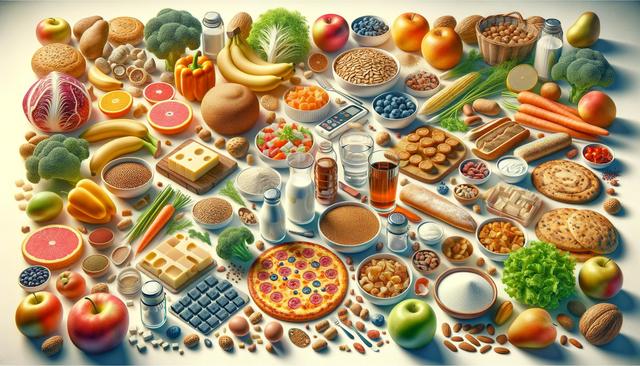Understanding Diabetes and Dietary Impact
Managing diabetes effectively often requires significant lifestyle adjustments, particularly in diet. While medications are essential for many, the importance of a diabetic diet plan cannot be overstated. A diet that focuses on foods to lower blood sugar can help in maintaining stable glucose levels. To avoid spikes in blood sugar, it is crucial to identify and limit certain foods that could potentially worsen the condition. Here, we delve into specific foods that individuals with diabetes might consider avoiding to maintain better health outcomes.
High Sugar Foods and Beverages
High sugar foods and beverages are notorious for their rapid effect on increasing blood glucose levels. Foods like candy, pastries, and sweetened drinks contain simple carbohydrates that enter the bloodstream quickly. It’s advisable for diabetics to opt for sugar-free snacks instead, which provide the satisfaction of a treat without the sugar spike. Some alternatives include:
- Fresh fruits like berries or apples
- Unsweetened yogurt
- Nuts and seeds
These options can be part of a varied diabetic meal idea plan that supports sustained energy levels throughout the day.
Refined Carbohydrates and Their Effects
Refined carbohydrates, such as white bread, pasta, and white rice, can have a similar effect as sugary foods. They lack fiber, which slows down glucose absorption, leading to higher blood sugar levels. Healthy eating for diabetics involves choosing whole grains like brown rice, whole wheat bread, and quinoa. These provide more fiber, vitamins, and minerals, promoting a balanced blood sugar level.
Incorporating whole grains into your meals can enhance your diabetic meal plan by providing a steady source of energy without drastic sugar spikes.
Processed and Fatty Foods
Processed foods often contain unhealthy trans fats and high levels of sodium, both of which can be detrimental to heart health—a particular concern for those with diabetes. Examples of such foods include packaged snacks, fast foods, and fried items. For a healthier approach, individuals with diabetes are encouraged to prepare meals at home using fresh ingredients.
- Lean proteins like chicken and fish
- Plenty of vegetables
- Healthy fats such as olive oil
These choices can contribute to a heart-healthy and balanced diabetic diet plan.
Alcohol and Its Implications
Alcohol consumption requires careful consideration for diabetics, as it can lead to unpredictable blood sugar levels. While moderate alcohol consumption might be permissible for some, it’s important to monitor intake and choose lower-sugar options like dry wines or spirits mixed with sugar-free mixers.
Adding alcohol mindfully, if at all, into your lifestyle, requires understanding its interaction with your diabetic condition and planning accordingly.
Conclusion
Understanding which foods to avoid is a key component of managing diabetes effectively. By focusing on a diet that includes foods to lower blood sugar and integrating healthy eating habits, individuals with diabetes can better manage their condition. Creating a comprehensive diabetic diet plan with the right balance of sugar-free snacks and nutrient-dense foods can aid in achieving stable blood glucose levels, contributing to overall well-being. Always consult with a healthcare professional before making significant dietary changes to ensure they’re safe and suitable for your individual health needs.
